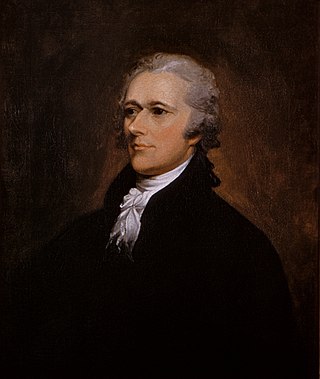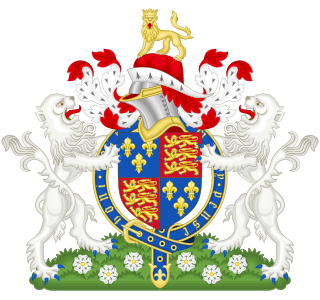History and contextual examples
British history of court cases show Secundum formam statuti used in the early 1600s. Case with usage,
- "Martis, 16 Junii, 1607
- Privilege.
- IN a Writ De partitione facienda, brought by Constance Lady Lucye, Widow, against Sir Robert Oxenbridge Knight, One of the Members of the House, in the Court
- of Common Pleas, the said Sir Robert made Default in his Appearance; whereupon a Writ was directed to the Sheriff to levy Issues.
- Motion was made for Privilege, on the behalf of the said Sir Robert: The Order of the Court, and the Writ read, in this Form:
- ...parturition inde inter es, secundum formam statuti in commodious casu proviso..."3
From, 'FORMEDON, old English law', there is found,
- "The writ of formedon is nearly obsolete, it having been superseded by the writ of ejectment...of the particular estate, displaced and turned into a mere right, the remedy is by action of formedon, displaced and turned into a mere right, the remedy is by action of formedon, (secundum formam doni,) because the writ comprehends the form of the gift."4
Found in 'The Case of Bankrupts'; ( Smith v. Mills) (1589) Trinity Term, 31 Elizabeth I; In the Court of the King's Bench. First Published in the Reports, volume 2, page 25a,
- "and other good merchants of London, brought an action upon the case upon trover and conversion of divers goods, in London, against Thomas Mills, and upon not guilty pleaded, the jury gave a special verdict to this effect: ... was possessed of the same goods, and exercising the trade of buying and selling, ...became a bankrupt, and absented himself secundum formam statuti,..."5
And in 'Shelley's Case'; (1581) Trinity Term, 23 Elizabeth I In the Court of King's Bench, before all the Justices of England. First Published in the Reports, volume 1, page 93b,
- "But it hath been said, that the Statute De Dionis Condition albus aids and helps the heir male of the body to take, for that the will of the donor appears, that the heir male of his body should have the land; and the statute saith, quod voluntas donatoris secundum formam in charta doni Sui manifeste expressa, De caetero observetur [Ed.: that the will of the donor be from henceforth observed, according to the form manifestly expressed in the charter of gift.]."6
In the Italian, '1STATUTI DI REGGIO D'EMILIA NELLA COMPILAZIONE DEL 1265 CON AGGIUNTE E MODIFICATION DEGLI ANNI 1266-1275',
- "Niel margarine superiore Del foglio 1 : 1270
- IN nomine domini, millesimo ducentesimo LXX, indictione XIIII;...per statutarios electos secundum formam statuti ad sortem in consilio generali,..."7
Translated, in the advanced margin of the sheet, number 1270, In nominations, dominions, ..., for statutes elected secundum formam statuti...
Habeas corpus is a recourse in law through which a person can report an unlawful detention or imprisonment to a court and request that the court order the custodian of the person, usually a prison official, to bring the prisoner to court, to determine whether the detention is lawful.

English law is the common law legal system of England and Wales, comprising mainly criminal law and civil law, each branch having its own courts and procedures.
Robert Burnell was an English bishop who served as Lord Chancellor of England from 1274 to 1292. A native of Shropshire, he served as a minor royal official before entering into the service of Prince Edward, the future King Edward I of England. When Edward went on the Eighth Crusade in 1270, Burnell stayed in England to secure the prince's interests. He served as regent after the death of King Henry III of England while Edward was still on crusade. He was twice elected Archbishop of Canterbury, but his personal life—which included a long-term mistress who was rumoured to have borne him four sons—prevented his confirmation by the papacy. In 1275 Burnell was elected Bishop of Bath and Wells, after Edward had appointed him Lord Chancellor in 1274.
In law, certiorari is a court process to seek judicial review of a decision of a lower court or government agency. Certiorari comes from the name of an English prerogative writ, issued by a superior court to direct that the record of the lower court be sent to the superior court for review. The term is Latin for "to be made certain", and comes from the opening line of such writs, which traditionally began with the Latin words "Certiorari volumus...".
A writ of prohibition is a writ directing a subordinate to stop doing something the law prohibits. This writ is often issued by a superior court to the lower court directing it not to proceed with a case which does not fall under its jurisdiction.
In English history, praemunire or praemunire facias refers to a 14th-century law that prohibited the assertion or maintenance of papal jurisdiction, or any other foreign jurisdiction or claim of supremacy in England, against the supremacy of the monarch. This law was enforced by the writ of praemunire facias, a writ of summons from which the law takes its name.

The Commentaries on the Laws of England are an influential 18th-century treatise on the common law of England by Sir William Blackstone, originally published by the Clarendon Press at Oxford, 1765–1770. The work is divided into four volumes, on the rights of persons, the rights of things, of private wrongs and of public wrongs.
The privilege of peerage is the body of special privileges belonging to members of the British peerage. It is distinct from parliamentary privilege, which applies only to those peers serving in the House of Lords and the members of the House of Commons, while Parliament is in session and forty days before and after a parliamentary session.
A writ of coram nobis is a legal order allowing a court to correct its original judgment upon discovery of a fundamental error that did not appear in the records of the original judgment's proceedings and that would have prevented the judgment from being pronounced. The term coram nobis is Latin for "before us" and the meaning of its full form, quae coram nobis resident, is "which [things] remain in our presence". The writ of coram nobis originated in the courts of common law in the English legal system during the sixteenth century.
Replevin or claim and delivery is a legal remedy, which enables a person to recover personal property taken wrongfully or unlawfully, and to obtain compensation for resulting losses.

Quia Emptores is a statute passed by the Parliament of England in 1290 during the reign of Edward I that prevented tenants from alienating their lands to others by subinfeudation, instead requiring all tenants who wished to alienate their land to do so by substitution. The statute, along with its companion statute Quo Warranto also passed in 1290, was intended to remedy land ownership disputes and consequent financial difficulties that had resulted from the decline of the traditional feudal system in England during the High Middle Ages. The name Quia Emptores derives from the first two words of the statute in its original mediaeval Latin, which can be translated as "because the buyers". Its long title is A Statute of our Lord The King, concerning the Selling and Buying of Land. It is also cited as the Statute of Westminster III, one of many English and British statutes with that title.

Federalist No. 78 is an essay by Alexander Hamilton, the seventy-eighth of The Federalist Papers. Like all of The Federalist papers, it was published under the pseudonym Publius.

The Habeas Corpus Act 1640 was an Act of the Parliament of England.
West v. Barnes, 2 U.S. 401 (1791), was the first United States Supreme Court decision and the earliest case calling for oral argument. Van Staphorst v. Maryland (1791) was docketed prior to West v. Barnes but settled before the Court heard the case: West was argued on August 2 and decided on August 3, 1791. Collet v. Collet (1792) was the first appellate case docketed with the Court but was dropped before it could be heard. Supreme Court Reporter Alexander Dallas did not publish the justices' full opinions in West v. Barnes, which were published in various newspapers around the country at the time, but he published an abbreviated summary of the decision.

Semayne's Case 5 Coke Rep. 91, is an English common law case reported by Sir Edward Coke, who was then the Attorney General of England. In the United States, it is recognized as establishing the "knock-and-announce" rule.

Slade's Case was a case in English contract law that ran from 1596 to 1602. Under the medieval common law, claims seeking the repayment of a debt or other matters could only be pursued through a writ of debt in the Court of Common Pleas, a problematic and archaic process. By 1558 the lawyers had succeeded in creating another method, enforced by the Court of King's Bench, through the action of assumpsit, which was technically for deceit. The legal fiction used was that by failing to pay after promising to do so, a defendant had committed deceit, and was liable to the plaintiff. The conservative Common Pleas, through the appellate court the Court of Exchequer Chamber, began to overrule decisions made by the King's Bench on assumpsit, causing friction between the courts.
R v Journeymen-Taylors of Cambridge (1721) 88 ER 9 is a labour law case, concerning the historical attitude of the common law to trade unions. It held that strike action amounted to an unlawful and criminal conspiracy. This attitude prevailed through the 19th century, until trade unions were made lawful by Parliament in the Trade Union Act 1871 and the Conspiracy, and Protection of Property Act 1875. The Trade Disputes Act 1906 confirmed unions' legality at common law once more, and now the position is reflected in international law, particularly the ILO Convention No 87 and 98.
The writ of estrepement, or de estrepamento, was a writ in common law countries that would be used to prevent estrepement, a type of 'voluntary waste'. The waste that the writ would issue to prevent would be waste that occurred in response to a lawsuit seeking possession of the land, or a judgment against the waster where possession had not yet been delivered.

Taltarum's Case is the name given to an English legal case heard in the Court of Common Pleas, with decisions being handed down in 1465 and 1472. The case was long thought to have established the operation of the common recovery, a collusive legal procedure that was, until finally abolished in 1833, an important element of English law of real property. By means of a complex legal fiction, a recovery converted a freehold or copyhold property held in fee tail, which could not be freely sold or disposed of, into an estate in fee simple, which could be disposed without restriction.






